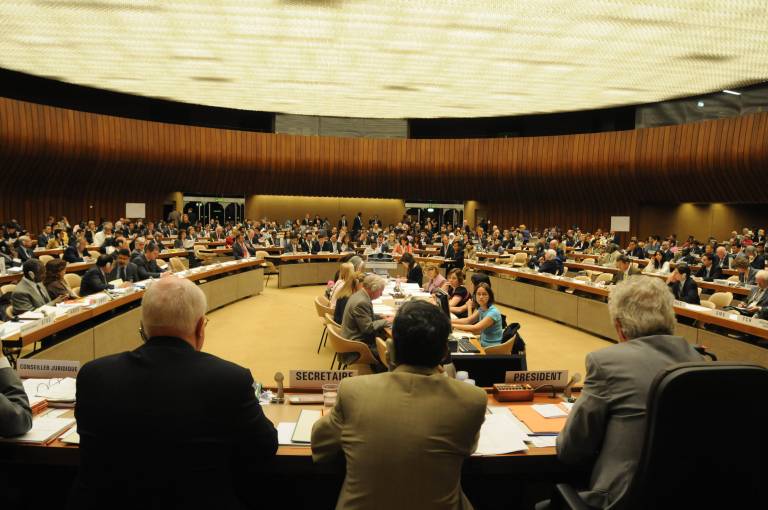
Author’s Note: Since this was published, the World Health Organization has announced that, for the first time in its history, the deliberations of the Plenary, Committee A and Committee B will be webcast and available to the general public.
In 10 days, delegates from World Health Organization member states will gather to discuss the most pressing global health issues facing the planet.
Sadly, the World Health Assembly is not noted for its accessibility. [See author’s note.] Despite prominent calls to webcast the event, there is no indication that this year’s event will be streamed, making keeping up-to-date remotely more challenging. This post outlines some of the websites and online tools that can help you to keep tabs on global health’s most important annual meeting.
World Health Assembly Website
http://www.who.int/mediacentre/events/2015/wha68/en/
The most obvious place to start is with the WHO itself. The Organization maintains a website that contains the agenda and copies of all of the documents to be discussed. Once the WHA begins, it will also include news releases, selected videos, and an embedded WHO Twitter feed.
Google Alerts
https://www.google.com/alerts
Personally, my favorite way to stay up-to-date is to set a Google alert.
Here’s how:
- Sign in to your Google account
- Navigate to the Google Alerts webpage
- Type in a phrase such as “world health assembly” or you can choose something narrower such as “world health assembly AND ebola”
- If desired, you can customize by clicking the pencil icon next to the phrase. Some customizations include, e.g.:
- Frequency (a once-a-day digest may be most useful)
- Sources (you can choose only news sources, e.g.)
- Whether you wish to receive updates via email or to your RSS reader
Once you’ve set up the alert, Google will scan the web for new content and send you an update whenever new content is posted that matches your description. You can always tweak your settings later if you are getting too many–or too few–notifications.
Twitter
https://twitter.com/hashtag/wha68
The single best source for real-time updates is Twitter. You can, of course, follow key actors so that their tweets appear on your timeline. You can also keep a stream of WHA-related tweets on in the background using hashtag #WHA68 (a direct link is available here).
Global Health Watch
http://www.ghwatch.org/who-watch/wha68 [thanks to Eric Friedman for the updated link!]
Global Health Watch offers thoughtful critiques and commentary of the proceedings of the World Health Assembly from a civil society perspective.
People’s Health Movement
http://www.phmovement.org/en/news-analysis
Like Global Health Watch, People’s Health Movement provides a critical, civil society perspective.
Kaiser Family Foundation
http://kff.org/global-health-policy/
The Kaiser Family Foundation provides excellent commentary on the proceedings, positioning discussions within the larger global policy context. KFF’s web briefing of the key issues for WHA 68 can be found here.
Access to Medicines-Specific Resources
For those who are particularly interested in following the access to medicines / trade and health issues that arise at the World Health Assembly, two websites stand out.
Intellectual Property Watch
http://ip-watch.org/
This news source provides some of the most comprehensive (and relatively objective) coverage of intellectual property-related developments at the WHA. Historically they have had reporters attending sessions so the site contains some of the most timely and informed commentary on this issue.
Knowledge Ecology International
http://keionline.org/
KEI, which also typically sends delegates to the WHA, is a team of thought leaders on access to medicines, offering an uncompromising pro-access, civil society perspective. While KEI’s ideas are sometimes on the fringe, they are rigorously researched, well-defended, and often influential.
What websites or tools do you use to follow the WHA? I’d love to hear from you in the comments!



